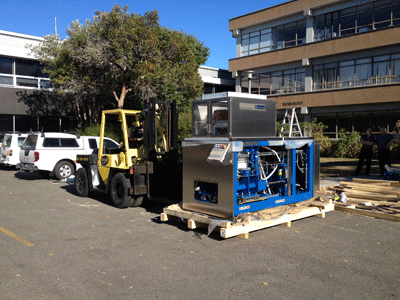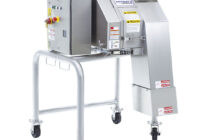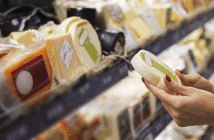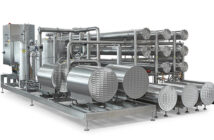By Matt Golding
Flexibility is not a word that comes easily to mind when considering the mass production of food. Testing new formulations or evaluating new processing options at a factory scale is far from the most efficient way of achieving effective product design.
That said, whilst product development at a kitchen or lab scale is considerably easier, less cost prohibitive, and allows for a higher throughput of samples to be evaluated, there is always the question as to whether product performance in the lab can be replicated adequately under factory conditions – scale-up is often difficult in food processing and can cause major headaches in developing new products and processes. Consequently, for many food manufacturers, pilot plant work is an essential aspect of successful new product development, as it can significantly mitigate scale-up problems.
Whilst the unit operations at pilot scale are representative of factory processes, the production volumes are considerably less than factory ones, and so it is considerably more cost-effective to carry out meaningful trials. Other advantages include the fact that many pilot facilities are modular, allowing greater flexibility in process design. Pilot scale operations are also beneficial in the evaluation of new technologies, for example, high pressure and pulsed electric field processing.
Determining the benefits of a new technology at a pilot scale is essential for minimising risk of implementing it as part of a full scale manufacturing process.
Garry Radford manages the FoodPilot, the food processing pilot plant at Massey University, which has been designed with these issues very much in mind. Part of the New Zealand Food Innovation Network, the facilities include a diverse range of processing technologies representative of those used for many different food categories. Perhaps not surprisingly, given the importance to the New Zealand economy, dairy technologies are well represented. These include cheese and ice cream-making facilities, separation technologies, a UHT sterilising plant and spray drying facilities ranging from one litre per hour up to 50 litres per hour. Other commodity areas catered for include meat processing, cereals (milling, extrusion), fruits and vegetables (postharvest storage and packaging, canning and retorting) as well as manufactured foods.
As well as an extensive suite of commercial processes, there is also an increasing focus on the application of emerging technologies, with the recent installation of a new state-of-the-art two litre Uhde HPP Technologies static high pressure unit, enabling pressures of up to 7000 bar to be applied to foods for microbial inactivation, and control of ingredient functionality.
Ensuring that foods produced in the pilot plant are acceptable for human consumption requires a hygienic setting to be maintained at all times – the FoodPilot’s ‘Red-Line’ environment is accordingly designed and run according to the same strict risk management programme (audited by the New Zealand Food Safety Authority) that would typically be encountered in a modern food manufacturing plant.
Accreditation of this facility ensures that foods produced using pilot plant equipment are of an acceptable standard for consumption and, if required, export. The scale of the FoodPilot facilities is ideal for production of smaller volumes of products, providing a highly cost-effective means of producing food materials as part of product/ ingredient development or testing, yet which can still be considered representative of commercially manufactured equivalents.
A particular advantage of this approach is that products prepared within the FoodPilot can be evaluated for quality, stability and safety using onsite facilities, such as the sensory and food characterisation labs. Development of prototypes prepared within the FoodPilot can also be readily up-scaled to semi-commercial production through the use of the facilities available at the Food Bowl in Auckland.
Finally, it’s important to point out that whilst the Massey University pilot plant is open to the New Zealand food industry to enable manufacturers to carry out cost-effective trials, it also provides an essential contribution to the teaching of Massey University’s Bachelor of Food Technology degree. Massey food technology students get early exposure to the pilot plant in their first year. By their fourth year of study they are able to work independently on individual and group research projects and product development exercises, most of which are sponsored by commercial partners. The ability to work in an environment closely related to that found in the food industry provides students with a greater awareness of the typical activities, responsibilities and roles associated with food production, and is considered great preparation for a potential career in the industry.
For more information on the Massey University FoodPilot and its capabilities, and to make requests for technical expertise or use of the plant’s facilities: [email protected]





























































































